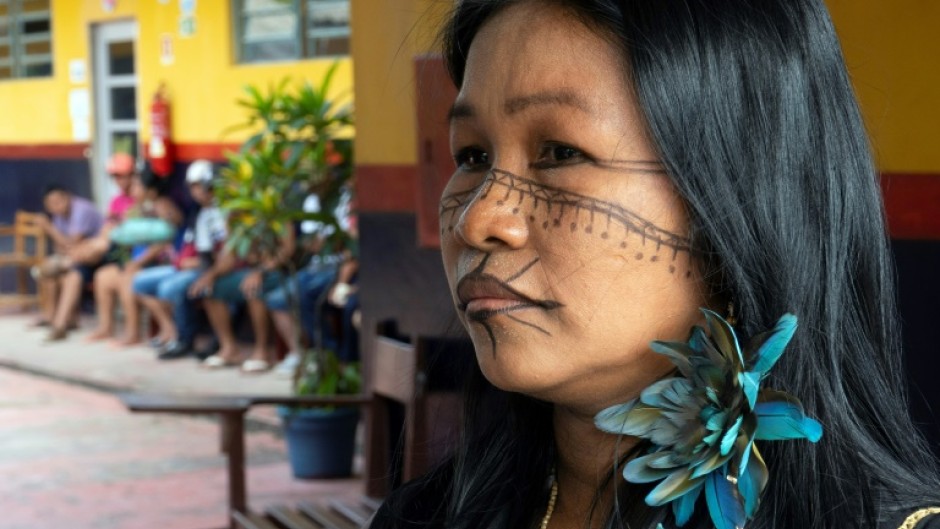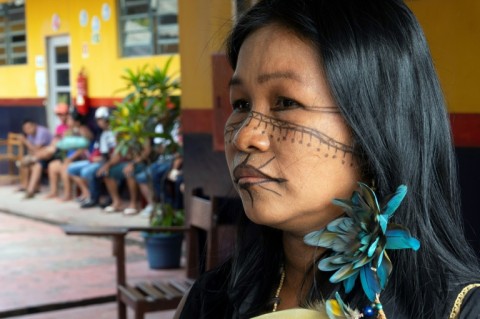
TABATINGA - Deep in the Amazon, near the region where British journalist Dom Phillips and Brazilian Indigenous expert Bruno Pereira were murdered in June, native Ticuna people are glued to a TV, watching the results of Brazil's down-to-the-wire presidential election.
Wearing traditional face paint and feather headdresses, they suddenly explode into cheers and set off fireworks: veteran leftist Luiz Inacio Lula da Silva has been declared the winner.
The former president (2003-2010) defeated far-right incumbent Jair Bolsonaro by a razor-thin margin in Sunday's divisive runoff vote, 51 percent to 49 percent.
But in the Umariacu 2 Indigenous reservation, a community of mainly wood and tin-roof houses near Brazil's border with Peru and Colombia, Lula won in a landslide.
The left-wing icon took 67 percent of the vote in the county of Tabatinga, where the community votes.
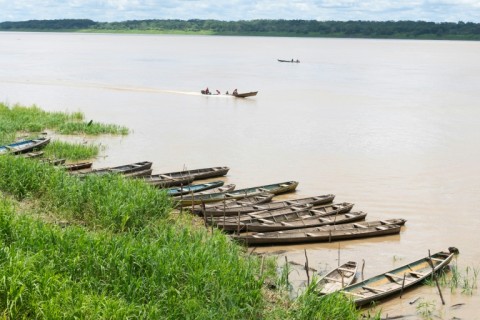
Bolsonaro is reviled in many native communities for presiding over a surge of destruction in the Amazon, pushing to open Indigenous reservations to mining, and vowing not to allow "one more centimeter" of native lands to receive protected status.
"I was very nervous waiting for the result, but when Lula won, I felt so happy," Indigenous council member Nagela Araujo Elizardo told AFP.
"Lula will do a lot of good for this region. He's completely different from Bolsonaro."
The first thing Lula should change, Elizardo said, is the government Indigenous affairs agency, FUNAI, which native peoples accuse Bolsonaro of gutting and turning into an organization hostile to their interests.
- 'We suffered four years' -
Tabatinga has 57 indigenous villages, including Umariacu 1 and 2, home to around 12,000 Ticunas.
The far-flung region has been hit by violent crime and growing lawlessness, including drug trafficking, poaching and illegal logging.
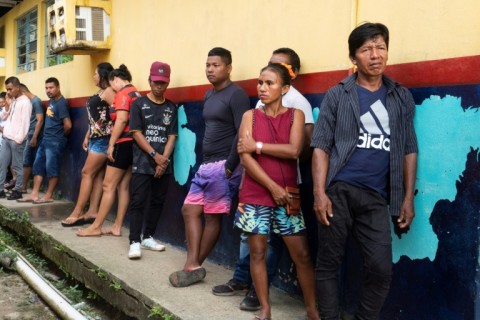
It is near the sprawling Javari Valley Indigenous reservation, home to the largest concentration of uncontacted tribes on Earth.
Phillips, a correspondent for The Guardian, The New York Times and other leading media, and Pereira, a respected Indigenous expert, were just outside the Javari reservation when they were murdered on June 5.
Police say they were killed by members of an illegal fishing ring angry over Pereira's work organizing Indigenous patrols to combat poaching on native land.
The case triggered international outcry and drew fresh attention to rampant crime and environmental destruction in the Amazon under Bolsonaro, who has presided over a 75 percent increase in the average annual deforestation rate.
Those in Tabatinga know the violence all too well: FUNAI's anti-poaching chief in the region was murdered there in 2019, in a gangland-style execution.
"We suffered for four years, it seemed like there was no way out. Now my community is celebrating," said Sebastiao Ramos, 57, head of the Indigenous council for the Ticuna villages of the Amazon river, who was wearing a yellow and blue feather headdress.
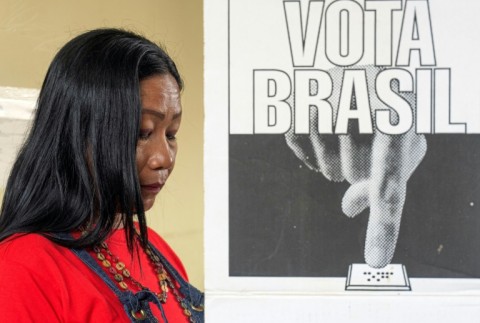
Ticuna residents said they hoped for a change for the better, as they celebrated, played music and waved "L" hand signs for Lula.
"I've followed Lula for a long time," said 53-year-old teacher Luz Marina Honorato, praising the ex-metalworker's focus on not just Indigenous but women's issues, as well.
In his victory speech, Lula vowed to work to achieve zero deforestation, saying, "We need a living Amazon."
He has also pledged to create a ministry of Indigenous affairs, and name an Indigenous person to lead it.
bur-rsr/jhb/sst
By Lionel Rossini With Ramón Sahmkow In Brasilia

